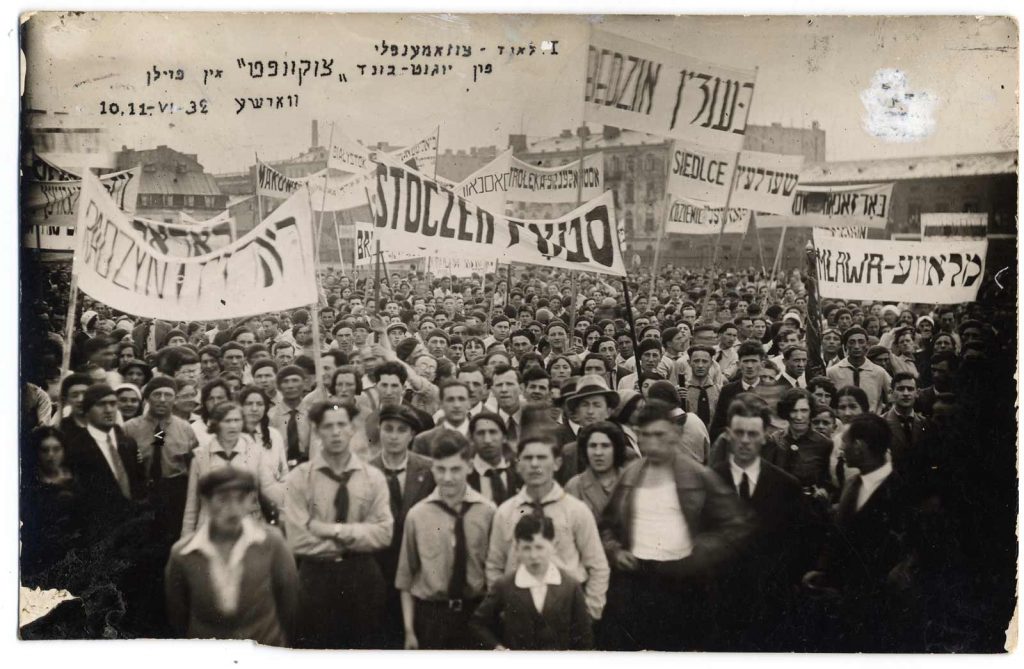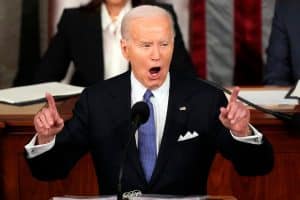When Zionists argue that anti-Zionism is equal to antisemitism, they gloss over the rich and deep history of the anti-Zionist movement in Jewish civil society. Judaism is not equal to Zionism, and this argument weaponizes the religion for Zionism’s violent political gain. This erasure of the historical lineage of anti-Zionism is, in and of itself, an antisemitic act. Eliminating this important aspect of the Jewish record leaves only the Zionist interpretation — one of victimization, despair, and ultimately, leaving Europe. This perspective was and continues to be used as an excuse for racism, colonialism, war crimes, and more. But the General Jewish Labor Bund believed strongly that Jews should fight antisemitism at home, and even took up arms to do so. These were the world’s first anti-Zionist Jews.
The Bund was founded by Ashkenazi Jews, those of Central and Eastern European descent. More than 80 percent of Jewish people today are Ashkenazim. The Bund was formed in the Pale of Settlement, an area now part of Poland, Russia, Ukraine, Lithuania, Belarus, and Moldova that was originally designated by Russia’s tsarist regime as the area for Jews to settle in the 1700s.
The Bund’s history should be better known. It is part of a fuller story of Jewish anti-Zionism that must be shared loudly and widely — so that Jews around the world know that they have a rich archive to draw from beyond colonialist Zionism, and so that the equation of “anti-Zionism = antisemitism” can finally be put to rest.
Anti-Zionism in its original form in the Bund went hand-in-hand with the fight against antisemitism, as it does now in the 21st century as well. Large populations of Jews themselves have been anti-Zionist for as long as Zionism has existed. In fact, the Bund was formed the very same year that Theodor Herzl launched the World Zionist Organization.
The General Jewish Labor Bund, (אַלגעמײנער ייִדישער אַרבעטער־בונד, “algemeyner yidisher arbeter-bund in lite”) was founded in the Russian Empire in 1897, well before Zionists were violently murdering and forcing Palestinians from their homes in 1948. The secular Jewish socialist movement started as both a trade union and political party, with the goal of organizing the Jewish proletariat in Russia, and then in Poland, Lithuania, and beyond. The Bund had summer camps, women’s groups, sports teams, Yiddish lessons, sanitariums, youth groups, and more.
In Yiddish, בונד (“bund”) is simply the word for “union” or “federation.” But within Jewish history, there has come to be only one bund, the Bund. The organization quickly became the only use for the word, even when Yiddish was still widely spoken.
The Bundists were strongly opposed to Zionism. When the Zionists called for running and hiding from antisemitism, the Bund instead chose to stay and fight to end antisemitism at home in Central and Eastern Europe. Marek Edelman, a Bund Commander of the Warsaw Ghetto Uprising, said, “The Bundists did not wait for the Messiah, nor did they think about migrating to Palestine. They wanted Poland to be a country of justice, socialism, and equal rights for national minorities.”
At the time of the Bund’s founding and before, pogroms were a serious threat to the lives and well-being of Jews throughout the Pale of Settlement, and major political repression was rampant. They believed that “emigration” to Palestine (which became a brutal colonization) was a form of escapism, playing straight into the hands of the antisemitic movements that sought to be rid of Jews completely. Now, we see too that Zionism weaponizes the religion for political gain through collective guilt of “antisemitism.”
The explicitly socialist nature of the Bund shows us how Jewish anti-Zionism has its history in anti-capitalism. Bundism rested on three pillars: socialism, do’ikayt, and secular Jewish culture in Yiddish. In Yiddish, דאָיִקייט (“do’ikayt”) means “here-ness.” It is a nod to diasporism, a commitment to celebrating Jewish roots wherever — and within whatever dominant other culture — Jews may actually live. It meant an investment in Jewish life, Ashkenazi culture, and Yiddishism. And to the Bundists, it also signaled a deep commitment to Marxism. Do’ikoyt means that you stay where you are and fight as hard as you can, and is very much related to the crucial Jewish tenet of תיקון עולם (“tikkun olam”), or “repair the world.” This, of course, includes, but is not limited to, the fight against antisemitism that is still being fought today.
Do’ikayt was so ingrained in Jewish civil society that there are even folk songs written about the concept:
Oh you foolish little Zionists
With your utopian mentality
You’d better go down to the factory
And learn the worker’s reality
You want to take us to Jerusalem
So we can die as a nation
We’d rather stay in the Diaspora
And fight for our liberation
We’d rather stay in the Diaspora
And work for our liberation1Originally written in the early 20th century. Collected in 1931 by Moshe Berengovsky, translated to the English by Daniel Kahn.
Jewish socialism has a deep, powerful history. It was clear that to the Bundists, anti-Zionism and anticapitalism were two sides of the same coin. This folk song beautifully shows the marriage of the two. The General Jewish Labor Bund’s commitment to both do’ikayt and tikkun olam comes through as the major motivators in both its anti-Zionist and anticapitalist organizing.
Bundists always argued that Zionism was directly linked to rises in antisemitism. During the 1936 Warsaw kehilla elections, Henryk Ehrlich, a high-ranking activist of the Jewish Labor Bund in Poland, former member of the Petrograd Soviet, and a member of the executive committee of the Second International, caused a scandal. He accused Zionist leaders in the kehilla of being responsible for recent antisemitic crusading in Poland, by way of urging Jews to leave Europe, which he said played directly into enemy hands.
Once again showing the importance of the link between tikkun olam and socialism, Erlich is quoted as saying, “The Bund taught the Jewish worker that his power lies not in national unity with his exploiters, the rich and their minions, the clerics, but in class struggle against the capitalists without difference of nationality: and in international unity with all toilers and oppressed.”
Ehrlich was arrested during World War II, along with his comrade Wiktor Alter, as an “enemy of the Soviet Union.” He was imprisoned, not for the first time. Both Eleanor Roosevelt and Albert Einstein made direct appeals to Stalin for his release. He died in prison, a martyr for both true socialism and Jewish anti-Zionism.
After the Holocaust, the General Jewish Labor Bund was re-founded in New York as the International Jewish Labor Bund, with affiliated groups in Argentina, Australia, Canada, France, Israel, Mexico, the United Kingdom, and other countries.
In 1947, the newly re-founded International Bund was decidedly against the United Nations General Assembly’s vote on the partition of Palestine. The 1948 New York Second World Conference of the International Jewish Labor Bund condemned the proclamation of the Zionist state.
It’s well past time to reclaim Judaism without Zionism, an ideology inimical with tikkun olam. To do so, we must begin by looking to our past, to the rich history of socialist organizing done by the Jewish General Labor Bund. Jewish anti-Zionism’s roots in anticapitalism, which show such a deep commitment to tikkun olam, is a beautiful example that we must all learn from. Tikkun olam is meant to be the guide for Jews, religious and secular alike, in all actions, and should lead Jews the world over to speak out against the atrocities being committed by the colonial, apartheid state of Israel. Do’ikayt shows the deep importance of diasporism and confronting antisemitism headon. The fights for socialism, for Palestine, and the fight against antisemitism are inseparable.
Note: The Gotteiner Institute for the History of the Bund and the Jewish Labor Movement was established in 1991. The archives of the General Jewish Labor Bund are located at the YIVO Institute for Jewish Research in New York City.
Notes
| ↑1 | Originally written in the early 20th century. Collected in 1931 by Moshe Berengovsky, translated to the English by Daniel Kahn. |
|---|










